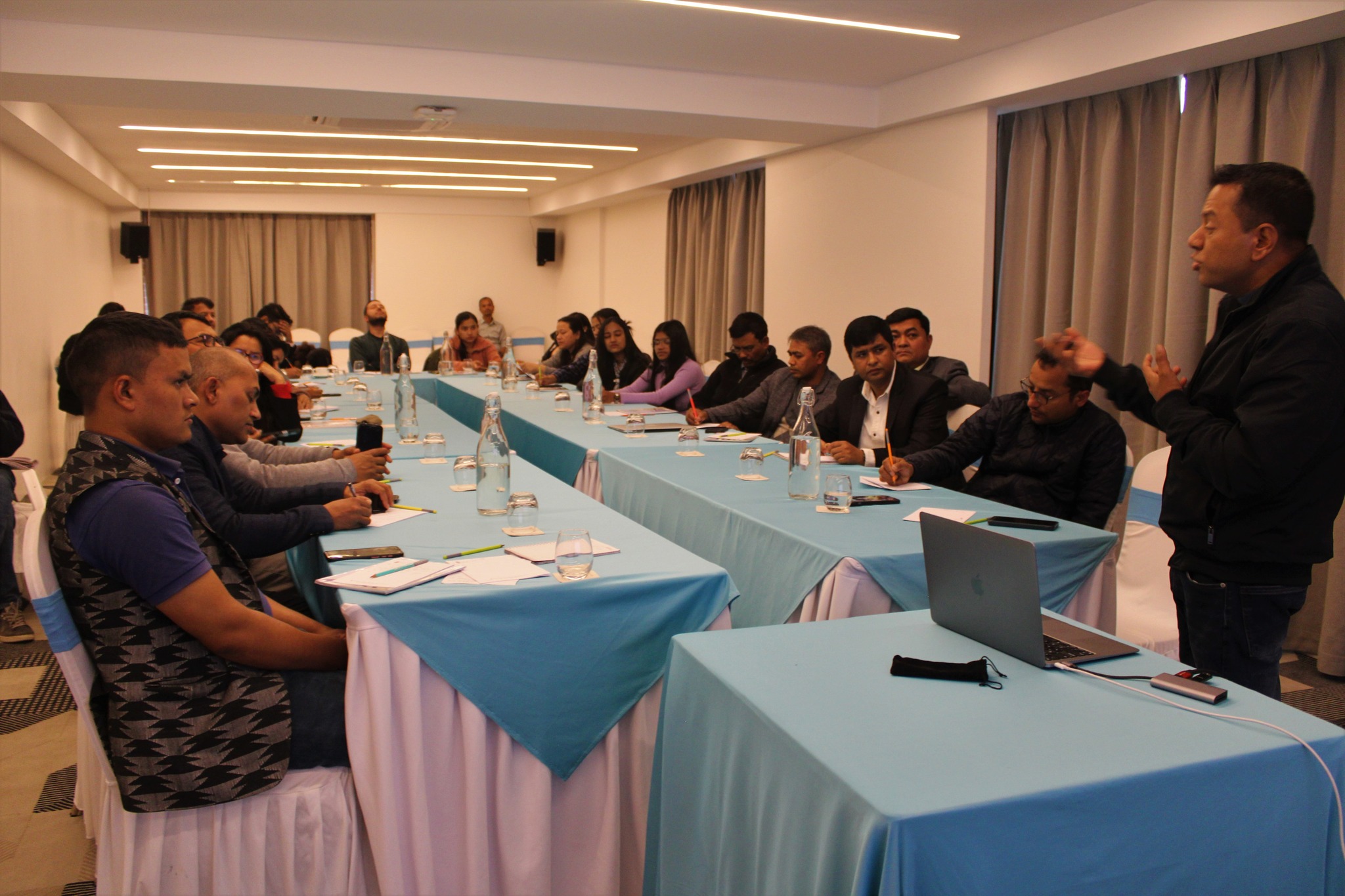
On March 20, a significant conference titled “Caste in the Digital Space” was held at Square Hotel in Pulchowk. The conference was organized by the Dignity Initiative in collaboration with Digital Rights Nepal. The main purpose of the event was to explore the intersection of caste-based discrimination and digital platforms. Digital rights activist Mr. Santosh Sigdel, made a presentation and was preceded by an objective highlights from Rup Sunar, Executive Head of the Dignity Initiative.
The conference started a vital discussion regarding the existing inequalities propagated in the digital space. Sigdel’s presentation provided an in-depth analysis of how digital platforms can both reflect and exacerbate caste-based discrimination, setting the stage for a rich dialogue among experts, stakeholders, and community members. Attendees engaged actively, sharing their experiences and raising critical questions about the role of digital media in perpetuating or challenging caste discrimination.
The participants voiced their concerns regarding community readiness to discuss caste openly, given the reluctance seen in physical spaces. The attendees also sought advice on how to educate friends and family about caste discrimination.

A human rights advocate emphasized the evolving nature of caste discrimination, noting that while it was once practiced directly, it has now transitioned to more subtle forms online. They highlighted the critical need for digital literacy to foster behavioral change and asked how individuals could protect themselves when legal institutions appear to overlook such issues. Sanju Singh BK added to the discussion by questioning the societal roles in combating discrimination based on surnames and whether commenting on caste issues online amplifies or mitigates their impact.
The conference yielded several key findings, including the recognition that access to social media is unequal across different communities and that there is a lack of disaggregated data on caste discrimination. The internet has perpetuated existing inequalities, with online hate speech becoming increasingly prevalent and capable of inciting offline violence. Participants noted that current laws addressing caste discrimination online are either inadequate or poorly enforced, and there is a pressing need to address algorithmic bias in AI technologies.
To combat these issues, participants proposed several recommendations. These included the establishment of clear regulations against online caste discrimination and hate speech, as well as increasing awareness among policymakers and the public about the impact of hate speech. Stronger enforcement mechanisms and clear reporting systems were deemed essential for addressing online hate. Moreover, promoting counter-narratives that emphasize inclusion and diversity, along with enhancing digital literacy programs, was highlighted as a crucial step forward.
In conclusion, the conference illuminated the complexities of algorithmic discrimination and the societal attitudes that influence online interactions. It emphasized the importance of parental guidance in regulating children’s social media use and called for collaborative strategies to combat bias in digital environments. As a foundation for ongoing discussions, this report highlights the necessity of continued engagement and collective efforts to address caste-based discrimination in the digital realm, ensuring that online platforms reflect the diverse needs of all communities.
